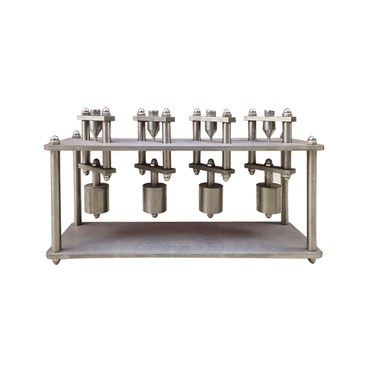thermal stability tester
Understanding Thermal Stability Testers Essential Tools in Material Analysis
In the fields of materials science, chemical engineering, and quality control, understanding the thermal stability of materials is paramount. Thermal stability testers are crucial instruments that help researchers and manufacturers ensure that materials can withstand elevated temperatures without undergoing undesirable changes. This article delves into the importance, functioning, and applications of thermal stability testers.
What is Thermal Stability Testing?
Thermal stability testing refers to the evaluation of a material's performance when subjected to high temperatures over a specific period. This type of testing assesses how materials respond to thermal stress, including changes in physical and chemical properties such as decomposition, phase transitions, and loss of mechanical integrity. The results guide industries in selecting suitable materials for various applications, from aerospace to electronics.
How Thermal Stability Testers Work
Thermal stability testers typically employ methods such as Thermogravimetric Analysis (TGA) and Differential Scanning Calorimetry (DSC). TGA measures the change in weight of a material as it is heated, while DSC assesses the heat flow associated with phase transitions or chemical reactions.
1. Thermogravimetric Analysis (TGA) In TGA, a sample is heated at a controlled rate in a specific atmosphere. The mass loss is continuously monitored, allowing the identification of thermal degradation temperatures, residual weight, and the composition of volatile components. This data is invaluable for understanding a material's thermal degradation mechanisms.
2. Differential Scanning Calorimetry (DSC) DSC assesses how much heat is required to increase the temperature of a material. By comparing the heat flow of a sample against a reference, it provides insights into thermal transitions like melting, crystallization, and glass transitions. This is particularly important in polymer science, where understanding thermal behavior can influence processing and end-use properties.
thermal stability tester

Applications of Thermal Stability Testers
Thermal stability testers find widespread use across various industries
- Materials Development In developing new materials, researchers rely on thermal stability testing to characterize the stability of polymers, composites, metals, and ceramics. This data informs the design of materials for specific applications, ensuring longevity and durability.
- Pharmaceuticals In the pharmaceutical industry, thermal stability testing ensures that active pharmaceutical ingredients (APIs) and formulations remain stable under varying temperature conditions. This is critical for maintaining efficacy and safety throughout the product’s shelf life.
- Food Industry The food industry uses thermal stability testing to ensure that packaging materials can withstand heat during processing and storage, thereby preserving product integrity and safety.
- Aerospace and Automotive In the aerospace and automotive sectors, materials are often subjected to extreme conditions. Thermal stability testing helps ensure that components remain reliable under thermal stress, thus ensuring safety and performance.
Conclusion
In conclusion, thermal stability testers are invaluable tools that play a critical role in material analysis across multiple industries. By providing insights into how materials behave under thermal stress, these testers help in the development of safer, more efficient, and durable products. As technology advances and industries evolve, the importance of understanding thermal stability will continue to grow, emphasizing the need for robust testing methodologies. Whether in research labs, manufacturing plants, or quality control environments, thermal stability testers will remain a cornerstone of material science.
-
Why the Conductor Resistance Constant Temperature Measurement Machine Redefines Precision
NewsJun.20,2025
-
Reliable Testing Starts Here: Why the High Insulation Resistance Measuring Instrument Is a Must-Have
NewsJun.20,2025
-
Flexible Cable Flexing Test Equipment: The Precision Standard for Cable Durability and Performance Testing
NewsJun.20,2025
-
Digital Measurement Projector: Precision Visualization for Modern Manufacturing
NewsJun.20,2025
-
Computer Control Electronic Tensile Tester: Precision and Power for the Modern Metal Industry
NewsJun.20,2025
-
Cable Spark Tester: Your Ultimate Insulation Assurance for Wire and Cable Testing
NewsJun.20,2025
 Copyright © 2025 Hebei Fangyuan Instrument & Equipment Co.,Ltd. All Rights Reserved. Sitemap | Privacy Policy
Copyright © 2025 Hebei Fangyuan Instrument & Equipment Co.,Ltd. All Rights Reserved. Sitemap | Privacy Policy
